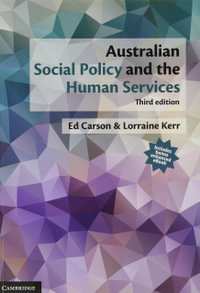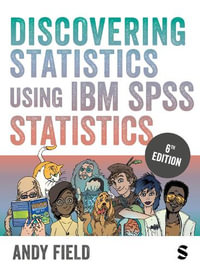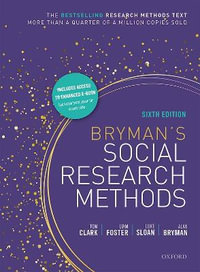
Extreme Value Modeling and Risk Analysis
Methods and Applications
By: Dipak K. Dey (Editor), Jun Yan (Editor)
Paperback | 18 December 2020
At a Glance
Paperback
RRP $101.00
$85.90
15%OFF
Available for Backorder. We will order this from our supplier however there isn't a current ETA.
Extreme Value Modeling and Risk Analysis: Methods and Applications presents a broad overview of statistical modeling of extreme events along with the most recent methodologies and various applications. The book brings together background material and advanced topics, eliminating the need to sort through the massive amount of literature on the subject.
After reviewing univariate extreme value analysis and multivariate extremes, the book explains univariate extreme value mixture modeling, threshold selection in extreme value analysis, and threshold modeling of non-stationary extremes. It presents new results for block-maxima of vine copulas, develops time series of extremes with applications from climatology, describes max-autoregressive and moving maxima models for extremes, and discusses spatial extremes and max-stable processes. The book then covers simulation and conditional simulation of max-stable processes; inference methodologies, such as composite likelihood, Bayesian inference, and approximate Bayesian computation; and inferences about extreme quantiles and extreme dependence. It also explores novel applications of extreme value modeling, including financial investments, insurance and financial risk management, weather and climate disasters, clinical trials, and sports statistics.
Risk analyses related to extreme events require the combined expertise of statisticians and domain experts in climatology, hydrology, finance, insurance, sports, and other fields. This book connects statistical/mathematical research with critical decision and risk assessment/management applications to stimulate more collaboration between these statisticians and specialists.
Industry Reviews
"This book has a broad readership, and it will be useful to graduate students and researchers in the field of statistics, finances, insurance, economics, geosciences, etc.. . This is an impressive and useful book, one which gives an effective account of statistical methods and theory used in extreme value analysis, as applied to problems arising in a variety of fields. It serves as an excellent, contemporary reference text in the area."
~International Statistical Review (2017)
"The strength of the book is its wide range, and it gives the reader a good idea of extremes' current vanguard. Appropriately, much of the work in the book focuses on dependence in extremes, whether it be in the multivariate, temporal, or spatial setting. . . A practitioner can use this book to get a good introduction to the current state-of-the-art for their type of problem, and use the relevant chapters and references as a launchpoint for their own study."
~The International Biometric Society
ISBN: 9780367737399
ISBN-10: 0367737396
Published: 18th December 2020
Format: Paperback
Language: English
Number of Pages: 520
Audience: General Adult
Publisher: Taylor & Francis Ltd
Country of Publication: GB
Dimensions (cm): 23.4 x 15.6 x 3.3
Weight (kg): 0.72
Shipping
| Standard Shipping | Express Shipping | |
|---|---|---|
| Metro postcodes: | $9.99 | $14.95 |
| Regional postcodes: | $9.99 | $14.95 |
| Rural postcodes: | $9.99 | $14.95 |
How to return your order
At Booktopia, we offer hassle-free returns in accordance with our returns policy. If you wish to return an item, please get in touch with Booktopia Customer Care.
Additional postage charges may be applicable.
Defective items
If there is a problem with any of the items received for your order then the Booktopia Customer Care team is ready to assist you.
For more info please visit our Help Centre.























